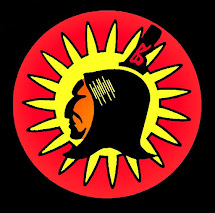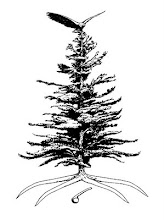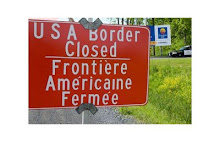
5 Questions with…
John Kane: Radio Host, Native Activist
The son of an ironworker from the Mohawk community of Kahnawake, John Kane grew up off reservation in a small town in Eastern New York, near the Vermont state line. After college, he married an Oneida woman and they raised their children in Seneca territory in Western New York. He became a member of the First Nations Dialogue Team in the mid to late 1990s, which is where he began speaking in public, writing letters to editors, and doing interviews on the battle with New York State over taxation. He currently hosts Let’s Talk Native…with John Kane on WWKB 1520AM, Sundays, 9-10pm.
Describe your show, in a nutshell.
“Let’s Talk Native…with John Kane” is a free-form show intended to be a conversation on a given Native issue or issues each week. Whether or not guests or callers join me, what a listener will hear is a full conversation on a subject—no sound bites or sensational one-liners, just an honest and thoughtful conversation. It is not the intent for the on-air conversation to be the last word on a subject but rather a thought-provoking start to a conversation that, hopefully, continues after each one-hour show.
Why do you suppose so little effort is made by local media to cover local Native affairs?
The media has become too much a part of the entertainment business. Unless Native issues can be sensational—tire fires, police confrontations, or political unrest that can compare to state or national scandals—our issues simply won’t buy ratings.
Overwhelmingly non-Natives think of the Native role in the regional economy to comprise cigarettes, gas, and gambling. What do you make of that?
It’s true but not necessarily by our choosing. While we have chosen certain businesses where our regulatory advantages have helped us to overcome or relatively remote locations, it was never our intent to get pigeon-holed into those businesses. On the Native Nations level, gaming has been shoved down our throats. If states had their way there would be no private sector development in “Indian Country,” only Nation-run gaming enterprises that have the state and federal regulators firmly embedded in those operations. On the private sector side, most businesses have become so consumed with fighting off the state that there is little money or will left for diversification. The question must be asked that if we can’t defend our place in legal trades like gas and tobacco, in what businesses would we be safe?
What opportunities do you see for economic development between Native and non-Native peoples? For cooperative growth?
I believe the answer to the current economic crises that are sweeping the globe is to turn away from the global economies controlled by the few where one region of the planet is exploited for their labor, resources, or lack of environmental concern to market to consumer-driven societies in another region. An emphasis on local economies where a dollar circulates several more times before it leaves the region makes sense on almost every level. Native sovereignty creates clean slates for economic development free from much of the bureaucracy that stifles business development. Native lands could be incubators for everything from the retailing of certain products to the manufacturing and tech transfers from the solid research institutions of the region. As businesses gain a sure footing within the safe havens of the economic development zones that Native lands could represent, they could expand throughout the rest of the region with a track record and business model already in play. Too much of the regional brain trust leaves the region for development elsewhere only to have the products of brain trust marketed back to the region. The same could be said for the resources of the region.
What’s the best show you’ve ever had?
If I had to recommend a listener to check out one show to convince them to check out more, I’d have to say listen to the October 16, 2011 show with Robert Batson or the October 23, 2011 show with Pam Palmater. Bob was the “Indian expert” for the Carey, [Mario] Cuomo, and Pataki administrations. The level of agreement we shared on the issues relating to our never-ending battles with the state is amazing. Pam is a Mi’kmaq and an author (Beyond Blood: Rethinking Indigenous Identity), university professor, and lawyer from the North. She was a great guest as we discussed the parallels with our battles with the US and Canada.
Read more: http://artvoice.com/issues/v10n47/five_questions#ixzz1f3x56oYm














![-[]-[]-/\-[]-[]-](https://blogger.googleusercontent.com/img/b/R29vZ2xl/AVvXsEjLoXmKO8PJVQ5pZ2q7GX7nFKw8H2tb28dxt-o10FUBNtOGszWhWoLB7tgjtMgtISpuSxNW3fcDxfuSS2DqojsdjNJ1lVggyUS374PnzsDbOhk4ukvtTunFQcyfkckZeBzcLbri4LDYN_E/s214/29-03-A-voice-from-the-Akw-.jpg)




